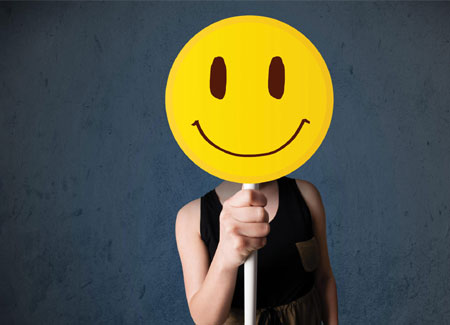
Have you ever thought about what brings you happiness? One common pattern that I have seen emerge from my interactions with our students is the following. Younger students, who are straight out of college, are extremely idealistic: they have dreams of bringing about change in this world, reducing poverty and inequality, and keeping their friends and family happy. Students with some amount of work experience say things differently: their focus moves to money, prestige, and ambition. Then there are the more senior professionals who aim to live a more balanced life so that their energies are nicely divided between health, family, profession, and social contribution.
The relationships between incomes, happiness, well-being, and life satisfaction have led to intriguing debates for scholars and philosophers. Firstly, does money buy happiness? Are wealthier people also happier? Are people getting happier over time as their incomes rise? There is plenty of cross-country evidence on this. The World Happiness Report based on the Gallup Poll tracks self-reported happiness across countries. Overall, richer countries tend to report higher average happiness levels. Nordic countries such as Finland, Norway, Denmark, and the Netherlands top the ranking while lowest scores come from African countries such as Sudan, Tanzania, Haiti. And over time, most countries that have experienced economic growth have also seen increased levels of reported happiness. Within countries as well, richer people report greater levels of happiness.
No doubt, money does help you get a comfortable life. You can pay for quality education, health, and social life. You can buy the amenities, live in well-equipped apartments, and pay for all the wonderful expensive activities such as traveling to the Alps. But the picture isn’t that straightforward. In fact, there are several puzzles that remain. One of them, for example, is called the famous Easterlin Paradox. This is the observation that even though US has seen economic expansion through post-war decades of the 20th century, surveys have failed to show any increase in happiness. So, it is not clear when does economic growth leads to happiness and when it does not. Professor Selin Kesebir from London Business School shows that this had something to do with income inequality: for countries where income inequality rose, higher incomes did not lead to more happiness.
Happiness is a rather esoteric concept. How would incomes relate to what people have to say about the meaning of life? Interestingly, another research looked at the same Gallup data and found that when people were asked the question, “Do you feel your life has an important purpose or meaning?”, GDP per capita was negatively linked to it. That is, people in wealthy nations reported lower levels of meaning in life than those of poor nations!
If you have seen Maslow’s hierarchy of needs, then yes — money helps you with the basic physiological and safety needs such as food, water, shelter, and safety. In fact, it also helps you with your needs of belongingness and love — you can impress others with money and ‘buy’ relationships — until you realise that these are rather superficial. The fourth level of needs in that hierarchy is related to self-esteem, feeling of prestige and accomplishment, and respect from others. In fact, success in one’s professional life is the most visible and immediate way to measure one’s accomplishments. The promotion parties and the year-end bonuses are easily seen and can be celebrated instantly. It is rather difficult to gauge one’s sense of achievement in raising a good family — returns come long time after the investments and, in many cases, cannot be seen in tangible terms. So, yes — it seems rather straightforward that money and happiness would be linked positively.
Apart from the superficiality of money in meeting the higher order needs of intimacy and self-esteem, the irrelevance of money becomes clear when you consider the human need of self-actualisation. This is the desire to grow and develop through one’s life, to contribute meaningfully to the society, and to be in sync with the planet and the cosmos. And perhaps, this explains the negative link between wealth and meaning of life. After having taken care of all materialistic desires, one ends up pondering of existential questions and consequently feel that emptiness. On the other hand, the poor find meaning in simply dealing with the struggles of their daily life successfully. Anyhow, it is intriguing to see the pattern: how our younger selves have idealistic visions of the world, our middle-aged selves move to getting entangled in the hustle bustle of materialistic life, and our older self ends up searching for purpose and meaning. What would you like to be — richer in terms of luxuries, life experiences, family bonds, peace, or purpose?
(Dr Kriti Jain is a faculty member at IE Business School, Spain and an EU Marie Curie Research Fellow)



